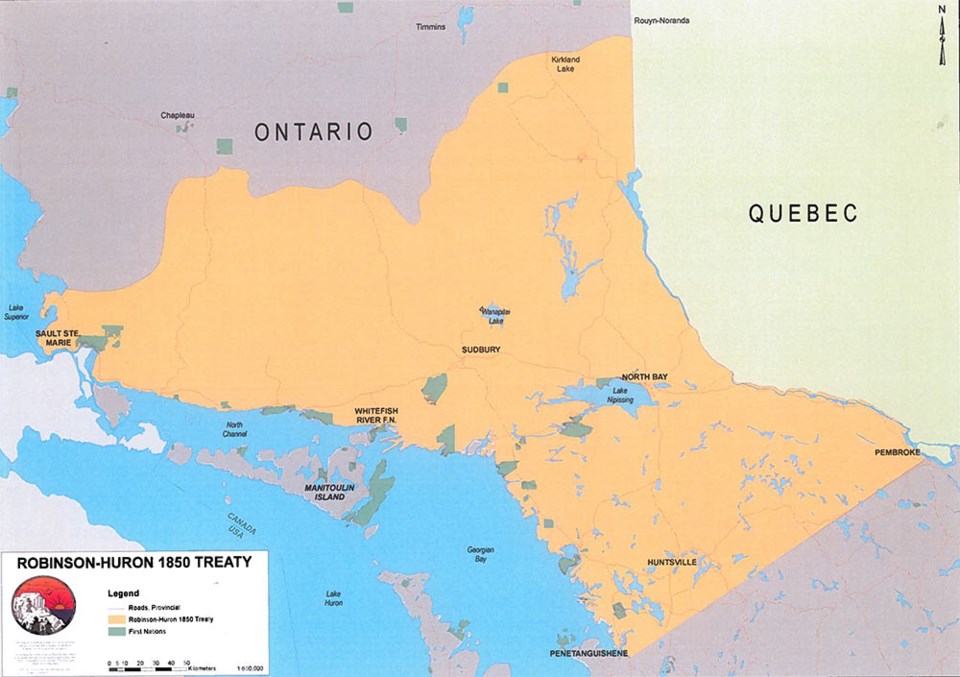A collective of people from First Nations in Robinson Huron Treaty territory — comprised of citizens, Anishinaabe scholars and champions of the language — have proposed an amendment to the compensation disbursement agreement for the $10-billion treaty annuities settlement that would place up to two per cent of the settlement for past compensation into a trust that would be used for Anishinaabe language revitalization efforts.
The grassroots group views the settlement as an opportunity to ensure that the language, known as Anishinaabemowin, will be carried on by future generations. “If all 21 First Nation communities — through their engagement sessions that were pretty extensive — identified language as a priority, then that is the mandate,” said group spokesperson Quinn Meawasige.
The grassroots group is also proposing to use some of the interest accruing on the settlement dollars to complete a needs assessment in order to determine how the trust fund would be used to fund Anishinaabemowin programming as seen in other well-resourced models that have produced both first and second language speakers.
As first reported by SooToday, the $10-billion settlement is collecting $1.3 million in daily interest as it sits in Robinson Huron Treaty Litigation Fund coffers. Equal payments of $5 billion were deposited by Canada and Ontario last month, completing a historic settlement for 21 First Nations in northeastern Ontario.
“The appropriate thing to do would be to engage the community — the people doing this work, the speakers, the educators — and through this needs assessment really find out what is the best way that we can maximize the use of these resources,” Meawasige said.
Ojibway languages were the most spoken Indigenous languages among First Nations people in Ontario with 14,535 speakers, according to Statistics Canada, despite that number being down 6.5 per cent from 2016. “Every year we know there are speakers passing away. The urgency is there,” Meawasige said.
The group is hopeful that the proposed amendment could be voted on during a meeting of Robinson Huron Treaty chiefs and trustees scheduled for later this month. So far, some chiefs and council members from First Nations in Robinson Huron Treaty territory have expressed support for the language trust proposal.
“If the mandate is there, and that was something that was listed as a priority, the chiefs would not be wrong for voting in favour of this motion,” Meawasige said.
A support letter template is being circulated among treaty beneficiaries and members of the Robinson Huron Treaty First Nations to send to their respective chiefs, councils and trustees.
